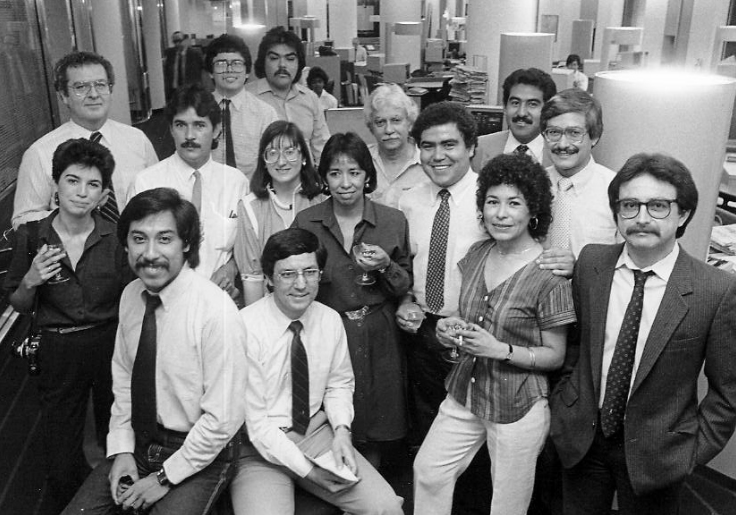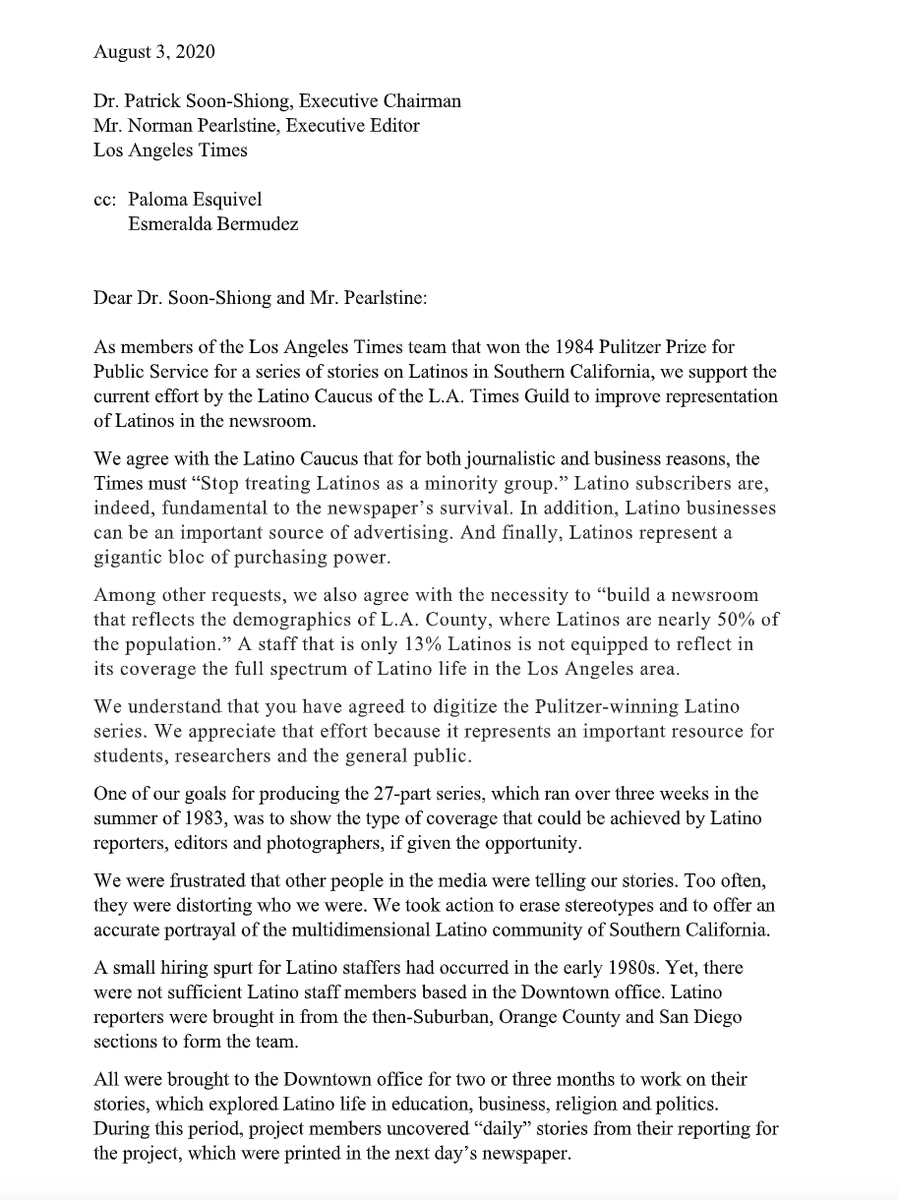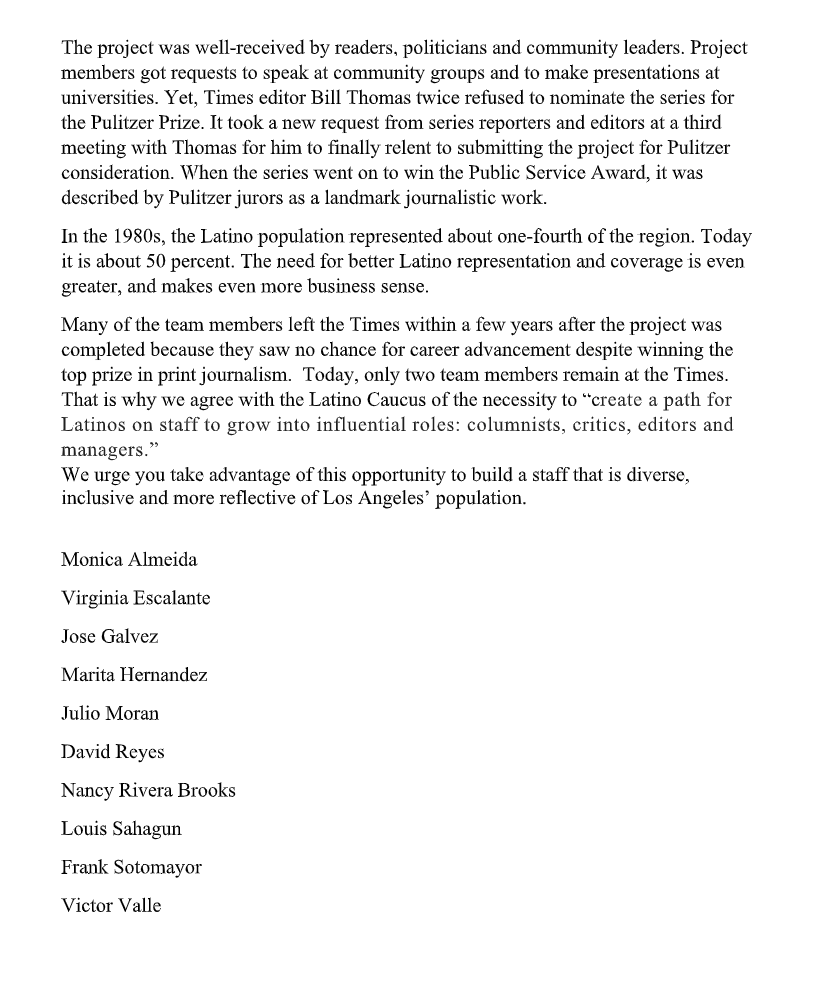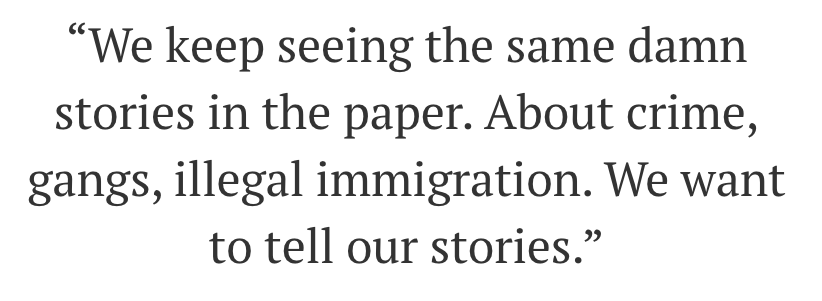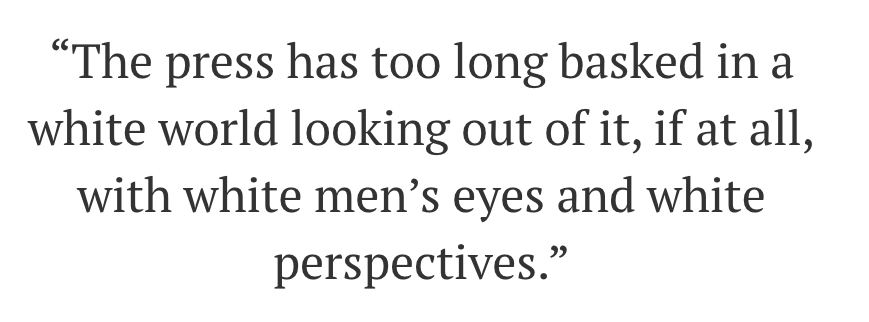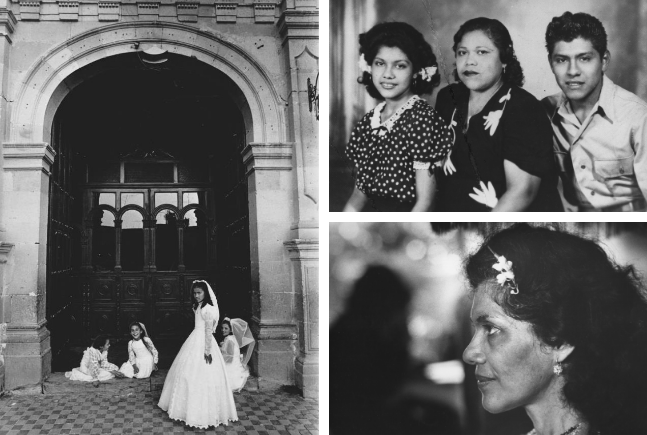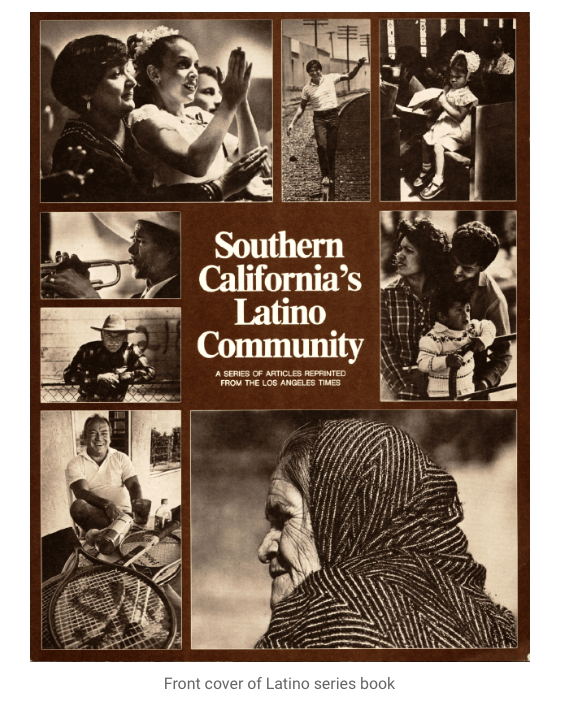The @LATLatinoCaucus formed to demand that the @latimes truly reflect L.A., which is half Latino.
Our Caucus was honored this week to receive support from a special group: the @latimes Latino team who won the 1984 Pulitzer Prize for their landmark series on Latinos.
#SomosLAT
Our Caucus was honored this week to receive support from a special group: the @latimes Latino team who won the 1984 Pulitzer Prize for their landmark series on Latinos.
#SomosLAT
The team's surviving members wrote @latimes owner & management a powerful letter:
"We urge you take advantage of this opportunity to build a staff that is diverse, inclusive and more reflective of Los Angeles’ population."
#SomosLAT
"We urge you take advantage of this opportunity to build a staff that is diverse, inclusive and more reflective of Los Angeles’ population."
#SomosLAT
In the letter, the team recounts their remarkable journey to winning the Pulitzer Prize for Public Service for a 27-part series about Latinos.
One of the goals of the series was to show the type of coverage that could be achieved by Latino journalists, if given the opportunity.
One of the goals of the series was to show the type of coverage that could be achieved by Latino journalists, if given the opportunity.
The team was frustrated that other people in the media were telling their stories, often distorting who Latinos were.
In the 1980s, a small spurt of Latinos were hired to the @latimes. They worked for 3 months to explore Latino life in education, business, religion, politics.
In the 1980s, a small spurt of Latinos were hired to the @latimes. They worked for 3 months to explore Latino life in education, business, religion, politics.
When the project published in the summer of 1983, it was well received by the community.
Still, the @latimes editor Bill Thomas twice refused to nominate the series for a Pulitzer.
It took a third push from the team to get him to finally relent.
Still, the @latimes editor Bill Thomas twice refused to nominate the series for a Pulitzer.
It took a third push from the team to get him to finally relent.
When the series went on to win the Public Service Award, it was described by Pulitzer jurors as a landmark journalistic work.
Today, the @LATLatinoCaucus stands on the shoulders of these @latimes Latino journalists who worked so hard to pave the way.
#SomosLAT
Today, the @LATLatinoCaucus stands on the shoulders of these @latimes Latino journalists who worked so hard to pave the way.
#SomosLAT
Despite their success, many of the team members left the @latimes within a few years after the series was
completed because they saw no chance for career advancement.
The @LATLatinoCaucus was created because our Latino journalists face a similar struggle today.
#SomosLAT
completed because they saw no chance for career advancement.
The @LATLatinoCaucus was created because our Latino journalists face a similar struggle today.
#SomosLAT
In the 1980s, the Latino population represented about one-fourth of the region.
Today it is about 50 percent.
The @latimes is 13% Latino.
From the team's letter: "The need for better Latino representation and coverage is even greater, and makes even more business sense."
Today it is about 50 percent.
The @latimes is 13% Latino.
From the team's letter: "The need for better Latino representation and coverage is even greater, and makes even more business sense."
We're grateful to the 1984 team for acknowledging our efforts and lending their support.
The @LATLatinoCaucus is here for the long haul -- to promote @latimes Latino journalists and to demand long overdue change.
#SomosLAT
The @LATLatinoCaucus is here for the long haul -- to promote @latimes Latino journalists and to demand long overdue change.
#SomosLAT
To learn more about how Our 1983 Latino Stories for L.A. Times Won Journalism's Top Prize:
https://jourviz.com/long-shot/
Photos and graphics in this thread courtesy of @latimes
 @FrankSotomayor, Julio Moran
@FrankSotomayor, Julio Moran
#SomosLAT
https://jourviz.com/long-shot/
Photos and graphics in this thread courtesy of @latimes
 @FrankSotomayor, Julio Moran
@FrankSotomayor, Julio Moran#SomosLAT

 Read on Twitter
Read on Twitter